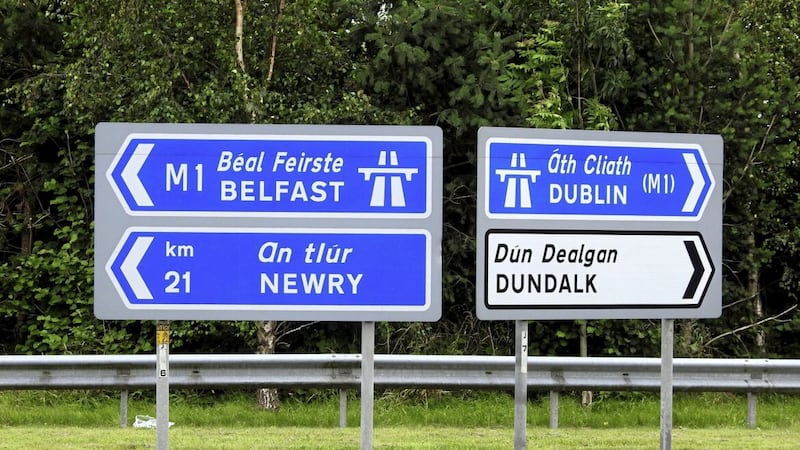This failed polity, whose inhabitants can’t even agree what to call it, is coming to an end.
That’s not because suddenly we discover there are more Catholics than Protestants in the north. It’s because the very purpose and intended function of the place, namely to carve out the largest area where unionist political hegemony could hold sway, is defunct. That has been the case for some time, certainly since 2017 when unionism lost its majority in Stormont. Since then evidence of the demise of unionist hegemony has accumulated rapidly, the census figures being the latest item.
The collapse of the rationale for the existence of this place means fundamental change is unstoppable. That change points in only one direction, the mechanism for which is stipulated in the Good Friday Agreement – a referendum on Irish reunification.
Those advocating a united Ireland have been pondering the nature and implications of Irish unity for years yet unionists and their allies in the media repeatedly claim falsely that nationalists avoid awkward questions about unity.
Unionists choose to feign ignorance of the growing debate and discussion about various aspects of a united Ireland despite the growing literature, academic and popular, around it. An indication of the growing momentum of the matter is the pile of books recently published: Frank Connolly, ‘United Nation: the case for integrating Ireland’, Kevin Meagher, ‘A United Ireland: why unification is inevitable and how it will come about’, Ben Collins, ‘Irish Unity: time to prepare’, and the brilliant Brendan O’Leary’s, ‘Making Sense of a United Ireland: Should it happen? How might it happen?’
Contrary to purblind unionist claims about avoiding the issue, each of these books examines the problems that need to be resolved before a question (or questions) is posed in a referendum. Would it be a unitary state, a federal state, would an assembly still exist? What about health, education, pensions, policing, the BBC? And much more, including the guarantee of a return to the EU as part of a new Ireland looking to a prosperous future instead of shackled to the post-imperial chaotic state in terminal decline across the water. Culpably, unionists turn a blind eye to higher pensions and benefits in the south and to the indisputable fact that the UK is one of the most unequal societies in the world. The Financial Times last week published figures showing that the poorest 10 per cent in the south rank 45 per cent, yes 45 per cent, above their equivalents in the UK and the bottom 5 per cent have a standard of living an incredible 63 per cent higher than the poorest 5 per cent in the UK.
The reason unionists ignore all this and deny united Irelanders have thought in detail about the problems of reunification is that, to engage, unionists would have to admit the raison d’être of this place they once owned no longer exists. They would have to devise another improbable raison d’être. Therefore any unionist who does concede that is instantly ‘a traitor and a Lundy’. Unionism is perforce mired in defending a non-existent past, forever compelled to reject reform or change. They have invoked a self-denying ordinance on their own future.
Despite unionists’ claims to the contrary, all these problems and implications will be examined in detail this Saturday in the biggest gathering so far this century, an extravaganza Ireland’s Future (of which I'm a board member) has organised in the 3Arena. Every political party on the island, sadly minus unionists and Alliance, will be represented. There’ll also be contributions from the Irish diaspora and every shade of civic group, the arts, trade unions, business and farming. The new Irish will also have a prominent presence. It will be a landmark occasion with thousands in the audience from across the island.
The absence of Alliance (despite repeated invitations) is regrettable and a political misjudgement. Even if they’d sent two as a metaphor for their fence sitting they can’t stay agnostic about the future. One day they’ll have to choose.









